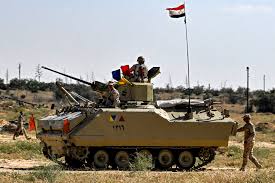Netanyahu’s Appeal to Egypt
Addressing Gaza’s Humanitarian Crisis
Prime Minister Benjamin Netanyahu called on Egypt to reopen the Rafah Border Crossing, expressing concern that Cairo’s closure was exacerbating the plight of Gaza’s residents. He suggested that Egypt’s reluctance to cooperate with Israel on this critical aid route was detrimental to the people of Gaza, whom he described as being “held hostage” by the ongoing border closure.
Background of the Rift
Egypt-Israel Relations
Egypt, as the first Arab nation to establish peace with Israel, holds a unique position in the region’s diplomatic landscape. However, recent tensions have strained relations between the two countries, particularly concerning Gaza’s humanitarian situation.
Accusations and Counterclaims
Netanyahu’s plea follows Egypt’s accusations against Israel for neglecting its responsibility in addressing the humanitarian crisis in Gaza. The breakdown of truce and hostage negotiations has further escalated tensions between the two neighboring nations.
Potential Implications
Impact on Gaza’s Population
The prolonged closure of the Rafah Border Crossing limits access to essential aid and services for the people of Gaza, exacerbating their already dire living conditions. Netanyahu’s appeal underscores the urgency of addressing humanitarian concerns in the region.
Diplomatic Fallout
The rift between Egypt and Israel not only jeopardizes bilateral relations but also complicates efforts to broker peace and stability in the broader Middle East. Reopening the Rafah Border Crossing could serve as a crucial step towards alleviating tensions and fostering dialogue between the two nations.
Prime Minister Benjamin Netanyahu’s call for Egypt to reopen the Rafah Border Crossing highlights the pressing need to address the humanitarian crisis in Gaza. As diplomatic tensions persist, cooperation between Egypt and Israel remains essential for promoting regional stability and ensuring the well-being of Gaza’s population.




